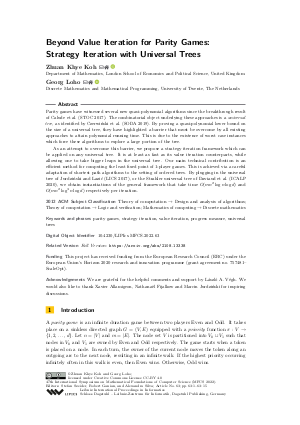LIPIcs.MFCS.2022.63.pdf
- Filesize: 0.76 MB
- 15 pages

 Creative Commons Attribution 4.0 International license
Creative Commons Attribution 4.0 International license
























Feedback for Dagstuhl Publishing